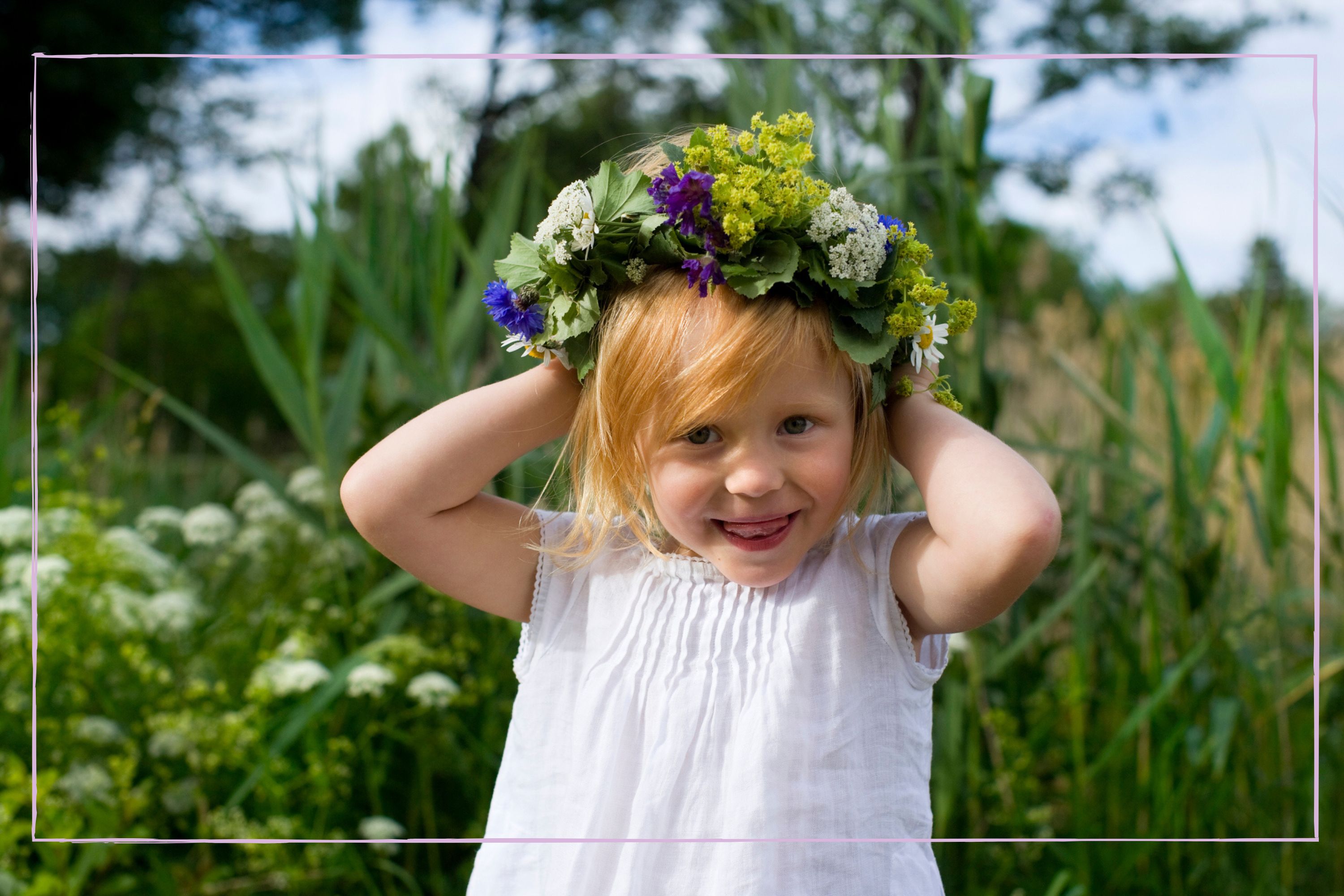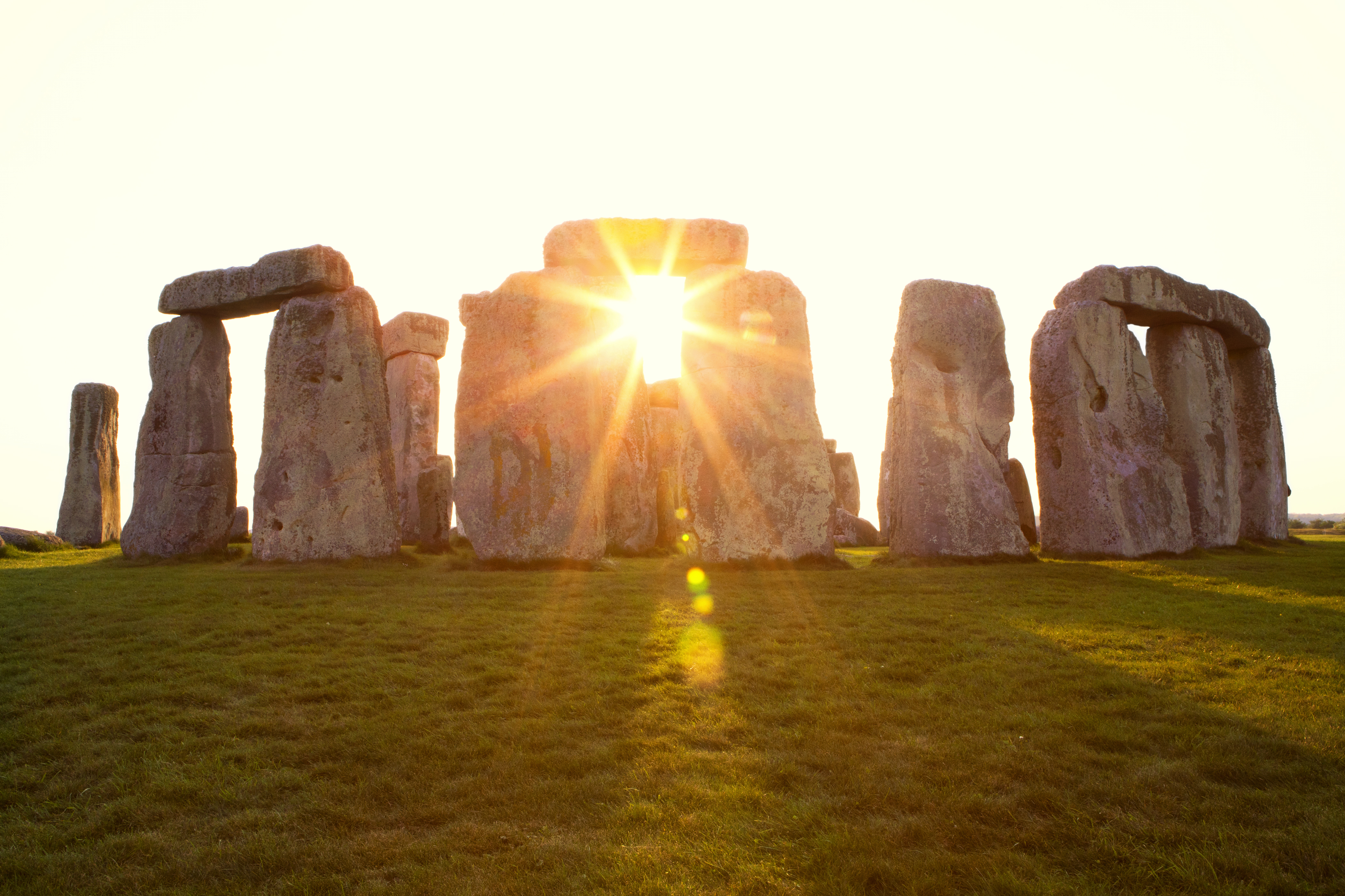
When is the summer solstice, how it's been celebrated historically, and how to celebrate it as a family - everything you need to know about the longest day of the year.
If you've been wondering when does summer start in the UK, you're not alone - with rain and low temperatures, you'd be forgiven for thinking it's not going to arrive at all. It's also the time of year to start thinking about when schools break up for the summer holiday, and shaping getaway plans for the long break - some might be jetting off in search of some warmer temperatures, or taking a family road trip closer to home.
One seasonal event for the calendar is summer solstice. Stonehenge is a popular site for crowds to gather and celebrate, while others choose family celebrations at home - picnics and summer crafts are popular ways to mark the occasion with children. We look at when the summer solstice is this year, and how it's been celebrated historically and in modern times. We've also got some activity suggestions if you're looking for quick and easy ways to engage your little ones with it.
When is the summer solstice 2024?
The summer solstice falls on June 20, 2024. The solstice always occurs between June 20 and June 22 but during a leap year such as this year, it always falls on June 20. The dates change from year to year because the calendar year doesn't match the time it takes Earth to orbit the sun - this is why we have leap years to bring the calendar back in line with the Earth's orbit.
Summer solstice signals the start astronomical summer, but not meteorological summer. In our northern hemisphere summer, meteorological summer begins on June 1 and ends on August 31.
It's also a well known fact the summer solstice is the longest day of the year, with the word solstice deriving from the fact the sun appears to arrive at a stand still - it's an amalgamation of the Latin words sol (sun) and sistere (to stand still).
As the planet tilts on a tilted axis, different regions of the planet receive varying amounts of sunlight as Earth orbits the sun. Without this tilt, there would be no seasons as there we'd experience an equal amount of daylight all year.
Celebrating the summer solstice 2024
For centuries, communities around the world have celebrated the summer solstice. That’s because because the sun is the bringer of light, life and previous generations would've needed plenty of it for a bountiful harvest.
In years gone by, it's thought many people gathered at Stonehenge at midsummer and to carry out rituals and ceremonies relating to the changing seasons. The monument is aligned with the movements of the sun, but there is still great mystery surrounding exactly why and how the stones were even placed in this position.
Traditionally, the summer solstice has also held great significance amongst spiritual circles, with religious groups such as the Pagans worshipping the power of the sun and its life-giving properties.
Elsewhere, Neolithic passage tombs including as Bryn Celli Ddu on Anglesey in north Wales and Townleyhall in Ireland's Co. Louth, also align with the midsummer sunrise. It's also though the tallest stone of the circle at Castlerigg could mark midsummer sunset for the north-west.
Crowds still gather at Stonehenge to honour this tradition and celebrate the longest day. Revellers gather in many places to watch the sunrise, light bonfires and dance the day away around a maypole.

Summer solstice activities
Floral crowns
Nothing says summer solstice more than getting crafty with the kids to make floral crowns. This can be anything from making simple daisy chain to wear on your head, to collecting fresh flowers from your garden to make something a little more fancy. Make a fresh flower crown with these simple steps, you'll just need wire and flowers.
- Find a piece of wire.
- Measure the wire around your head and fix the ends together.
- Trim any flowers you have to the size of your choice
- Wrap each flower stem with more wire
- Attach the flowers to the wire measured to go around your head.
- Fill any empty spaces - this can be with anything you have in your house from flowers you've crafted from tissue paper or card, to jewels you'd like to attach.

Make a collage
All you need for this is paper, glue, and some imagination. Go outside and hunt for anything that looks summery - different coloured leaves, petals, twigs, anything nature has left for you. Stick your finds to some paper of card for the perfect summer solstice collage.
Make a sun catcher
If the sun finds it's way out from behind the clouds, then try and trap it with a sun catcher! All you need for this one is some paper plates, yellow or gold paint, and raid your craft drawer for some sparkly things. Make your sun catcher using these simple steps:
- Cut two circular pieces of cardboard or remove the inside of two paper plates.
- Get your child to paint them yellow, silver or gold.
- Glue petals, sequins, coloured tissue paper, anything they fancy to a circle cut from a plastic file pocket.
- Cut another circle to enclose the treasures and glue both together.
- Enclose the pretty plastic circle inside the cardboard circles and glue shut, then thread through string to hang it up.
- Dangle near windows, where they will capture the sun’s light and create rainbows on the walls.
Get spiritual
Summer solstice is traditionally a time to banish darkness and usher in light. Yoga is a great way to release old, negative energy and welcome in the light. This could be a good time to introduce kids to the Cosmic Yoga YouTube channel - learn some moves and try them in the garden if the weather is good. This is also a great opportunity to try some mindfulness activities with little ones - this practice can help set them up with a positive coping mechanism for life.
These summer foods to cool you down could make a great addition to a summer solstice picnic, along with some summer Pimms for the adults. Compliment your outdoor time with the trendiest toys for outdoor fun out there.







